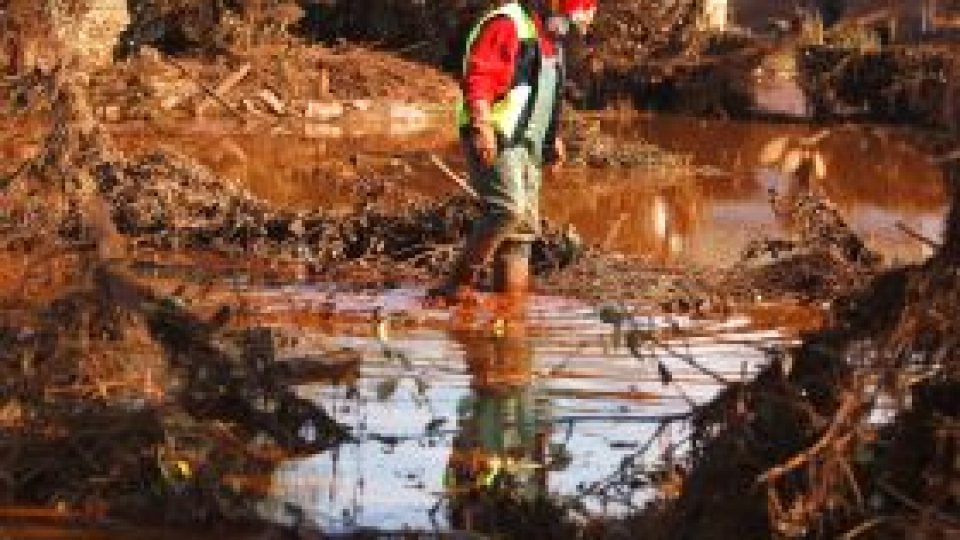Outcome of Hungary's ecological accident
Hungarian ecologists told our RRI correspondent in Budapest that the long-term consequences of this unprecedented disaster are difficult to assess.

10 Octombrie 2010, 17:33
Brussels is ready to act, European commissioner for humanitarian aid Kristalina Georgieva said, after Hungary activated the EU Civil Protection Mechanism in response to the flood situation caused by the ecological disaster in Ajka.
According to the Hungarian authorities, specialists are needed who have experience in toxic waste pollution.
The recent spill involves a mix of heavy metals that causes burns upon contact and death if swallowed.
Specialists say that measures taken in recent days along rivers, into which large amounts of decontamination substances have been added, have reduced the alkaline effect of polluting elements.
Hungarian ecologists told our RRI correspondent in Budapest that the long-term consequences of this unprecedented disaster are difficult to assess.
They warn that the red sludge is infiltrating the soil and that, once wind-dried and wind-bourne, it could contaminate areas that have yet not been hit. In addition, it may take more than a year to reconstruct and clean up the 7 villages hit by the flashflood.
Situated further down the Danube, Romania is also on high alert. Bucharest has accused its Hungarian neighbors of failing to properly communicate the situation, as they did not promptly send out information regarding the nature and amount of polluting substances.
As the river flows into the country, water samples are collected every 3 hours. Romanian Environment minister Laszlo Borbely noted that the local authorities are still hopeful that the abnormally high level of the Danube, above the usual October average, could neutralize the effects of chemical substances by dilution.
That is why, Evenimentul Zilei writes, “experts do not seem very worried by the potential outcome that the ecological disaster in Hungary could have in Romania”.
They warn, however, that “the Hungarian disaster could also occur in Romania”, where “there are dangerous industrial waste deposits, old and insecure, which should be shut down and cleaned-up.”
These deposits must be monitored 24 hours a day, with the smallest flaw reported and repaired immediately, says Environmental Guard general commissioner Silvian Ionescu. He admits, however, that “a human error” could manifest itself at anytime.














